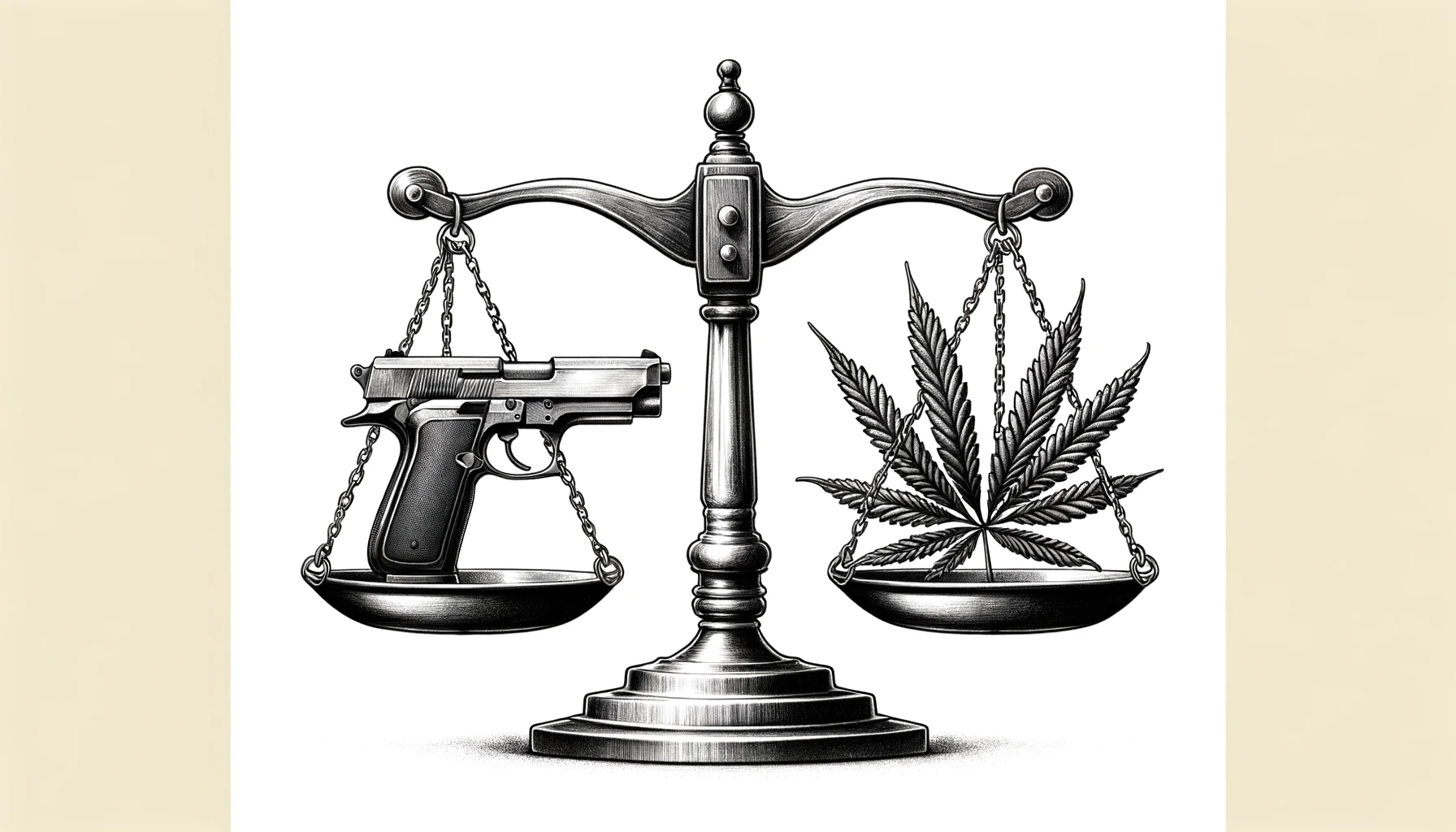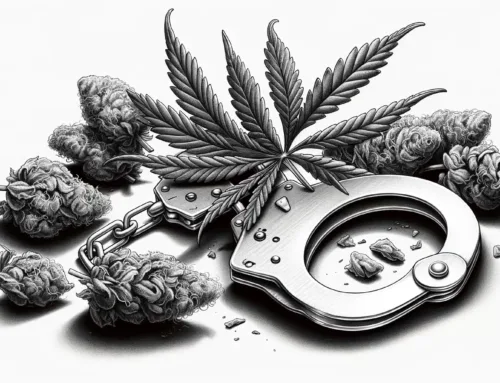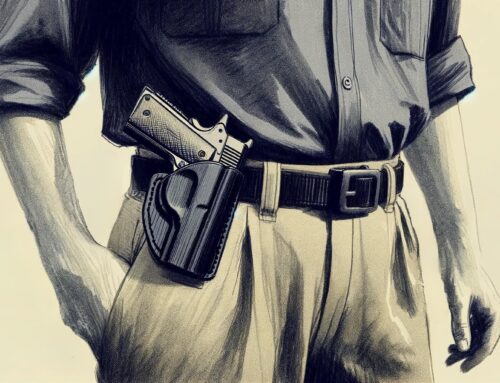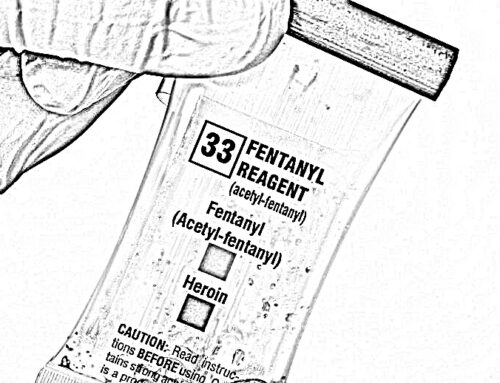Can You Have a Medical Marijuana Card and Own a Gun in Florida?
If you hold a medical marijuana card in Florida, you likely assume having the card gives you full legal access to medical cannabis. However, federal regulations prohibit medical marijuana patients from purchasing or possessing firearms and ammunition. This creates a frustrating paradox – receiving doctor-recommended treatment versus exercising your Second Amendment rights. I’ll analyze the contradicting state and federal laws so you understand your rights, risks, and options.
The Conflicting State and Federal Laws
Thirty-eight states, including Florida, have legalized medical marijuana for treating conditions like chronic pain, PTSD, seizures, and more. Moreover, two dozen states have legalized recreational marijuana use. Florida’s medical marijuana law allows prescribed patients to possess cannabis products without legal repercussions. However, marijuana remains federally classified as a Schedule I illegal substance under the U.S. Controlled Substances Act, alongside drugs like heroin and LSD.
The federal prohibition causes problems when state medical marijuana laws intersect with other federal regulations, like background checks for firearms purchases. While Floridians can legally use doctor-recommended medical cannabis, federal law views them as “unlawful users” who cannot buy or own guns.
The federal Bureau of Alcohol, Tobacco, Firearms and Explosives (ATF) reinforces this conflict through firearms license conditions and warning notices against possessing both marijuana and guns. Breaking these federal laws risks felony charges and steep penalties.
ATF Form 4473
When purchasing a firearm from a licensed gun dealer, federal law mandates completing ATF Form 4473. One question asks if you are “an unlawful user of, or addicted to, marijuana or any depressant, stimulant, narcotic drug, or any other controlled substance?”
As a medical marijuana patient, truthfully answering “yes” stops the purchase since it signals prohibited possession under 18 U.S. Code § 922(g)(3). You face charges for providing false information by answering “no” if discovered. This puts medical marijuana patients in a Catch-22 situation between following state vs. federal law.
It does not matter if your medical marijuana comes from a state-legal dispensary. Federal law does not distinguish medical use from recreational use. The laws only recognize that marijuana remains federally illegal, and gun ownership requires avoiding all Schedule I substances.
Court Rulings & Pending Challenges
Recent court rulings have supported blocking marijuana users from owning firearms under federal law. However, several ongoing legal challenges dispute whether the federal prohibition violates gun ownership rights.
In 2016, a Nevada woman sued when she was denied a gun purchase after obtaining a medical marijuana card. The 9th Circuit U.S. Court of Appeals ruled against her, citing the federal Controlled Substances Act’s view of marijuana users as “unlawful” and unable to possess firearms.
Conversely, a more recent 2022 federal court decision in Oklahoma argued that prohibiting firearms for marijuana users violates their constitutional Second Amendment rights. Citing the right to armed self-defense, the judge denounced applying an unconstitutional “sledgehammer” to restrict gun ownership.
This ruling has sparked momentum for reversing restrictions against marijuana patients owning guns. Federal judges in multiple states have issued similar stances that the federal ban likely violates gun ownership rights protected by the Second Amendment.
In August 2022, a lawsuit challenged Florida’s medical marijuana gun prohibition on behalf of three medical cannabis patients previously denied firearms purchases. The case is now on appeal in federal court, disputing the constitutionality of limiting a state-legal medical treatment based on federal drug codes. Other pending lawsuits make similar arguments regarding rights violations across the U.S.
While still federally prohibited for now, the tide may turn toward states’ rights as more courts question the federal ban. But the ongoing legal uncertainty keeps patients and gun sellers navigating difficult dilemmas between state allowances and stern federal warnings.
Navigating Medical Marijuana & Gun Ownership In Florida
Floridians can legally treat many conditions with medical marijuana, yet federal law still prohibits patients from purchasing guns. Patients must choose between Second Amendment rights and medical treatment advised by their physicians. This creates tricky situations for medical cannabis users attempting gun ownership.
The federal ban impacts gun shops and shooting ranges. Firearms dealers could have their licenses revoked for knowingly selling guns to medical marijuana patients. Shooting ranges also often ask if you use illegal substances before allowing entry. Medical patients still risk admitting substance use that could result in denial of entry or services.
You also face dilemmas applying for concealed carry permits in Florida. Forms ask about substance use, creating another Catch-22 about answering truthfully despite having a state medical marijuana card. Denying “unlawful” drug use means lying on legal forms. But admitting marijuana use, even for medical purposes, still causes permit denial (starting July 1, 2023, new legislation took effect in the state of Florida which authorizes a person to carry a concealed weapon or firearm without a concealed weapons license provided that the criteria for obtaining a license is met).
Overall, anyone holding a state medical marijuana card still qualifies as an “unlawful user” under federal law. Truthfully answering Form 4473 firearms questions requires admitting prohibited use and stopping gun purchases. Barring federal law changes loosening marijuana restrictions, medical patients encounter limited options.
Potential Federal Changes and Impact
Recent developments, however, indicate the federal classification of marijuana may soon change, which could significantly impact the rights of medical marijuana patients to own and possess firearms.
In September 2022, the U.S. Department of Health and Human Services (HHS) recommended reclassifying marijuana from Schedule I to Schedule III. This would acknowledge marijuana having some medical value and moderate potential for dependence. The HHS report and recommendation are binding on the Drug Enforcement Agency (DEA), which enforces federal drug codes. If adopted, medical marijuana patients may regain the ability to purchase/possess firearms. The DEA will make the final decision on whether to adopt the federal reclassification. Analysts expect an outcome before the 2024 election.
Your Options As A Florida Medical Marijuana Patient
Until the DEA reclassifies marijuana as a Schedule III substance, following federal laws means choosing between medical marijuana or firearms. But multiple options exist for patients seeking to protect themselves within reasonable limits:
- Consider non-gun self-defense – While firearms remain off-limits, medical marijuana patients can carry alternative self-defense weapons like stun guns, pepper spray, or tasers. Though not as potent for defense as a gun, these typically constitute legally acceptable options for marijuana patients needing protection.
- Apply for gun ownership before the medical marijuana card – Since Florida has no medical marijuana patient registry, patients can legally obtain firearms first before applying for their marijuana prescription card. However, purchasing future guns would still be prohibited for medical marijuana patients.
- Store guns outside personal possession – Patients who already owned guns before applying for medical marijuana may choose to store firearms with friends or relatives not registered in the state program. While no longer directly possessing the weapons, they remain available through outside parties if absolutely needed for self-defense.
- Consider discontinuing either medical marijuana or gun ownership – As unsatisfying as it sounds, fully following federal laws means deciding between treating medical conditions or retaining Second Amendment gun rights. Each patient must determine their own health and self-defense priorities in those difficult personal decisions. For some, giving up firearms may prove less disruptive than losing access to vital medical treatments through cannabis.
With multiple contradictory federal and state laws, nothing provides easy answers regarding medical marijuana and gun ownership. Sadly, until federal changes occur, conflicting messages, restrictions, and penalties will keep lawful medical cannabis patients facing harsh implications simply for following their doctor’s advice.









